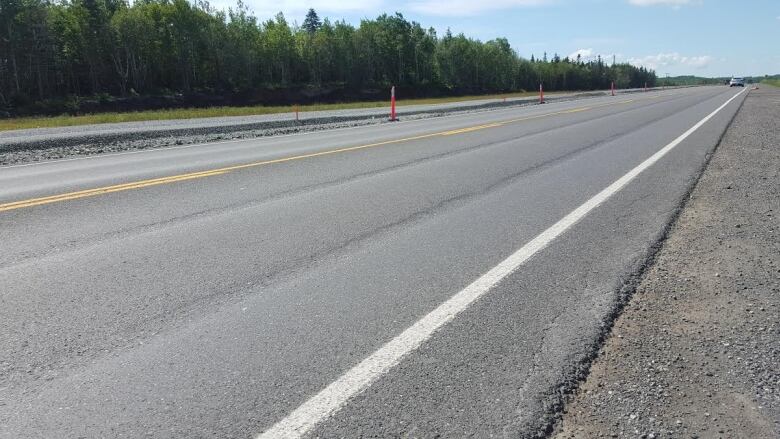Worsening ruts: Government experimenting with polymer pavement
Polymer addictive will cost province 20-25 per cent more

The Newfoundland and Labrador government is paving the busiest roadway in the province with a new mixture that's supposed to cut down the number of road ruts.
In the coming weeks, parts of theTrans-Canada Highway betweenWhitbourneand St. John's will be paved with asphalt that has been mixed with polymer.
For the last several road construction seasons, the province has paved the Trans-Labrador Highway using that mixture.
The mixture'sbenefit, according toTransportationand Works MinisterDavid Brazil, is its strength and ability to withstand harsh weather conditions.
"It has less chance of compacting, and particularly around our environment it holds up much better," Brazil told CBC News on Wednesday.
Greater the traffic volumes, deeper the ruts
"We're hopeful and we're easing in every year around how much we use but particularly we are targeting heavy traffic areas now," he said.
An increased volume of traffic has created deep ruts on parts of the TCH and other highways, leading to risks of hydroplaning.
Brazil said it will cost approximately 20 to 25 per cent more to add in polymer,but said it's worth the extra cost.
"If it improves safety on our roads, it eliminates our ruts,particularlyissues aroundhydroplaning and people'sapprehension on our highways when they're driving, then it's a good investment," he said.
If the new pavement holds up on the TCH near St. John's, Brazil said the governmentwill begin using it in other areas of the province.












_(720p).jpg)


 OFFICIAL HD MUSIC VIDEO.jpg)
.jpg)



























































































